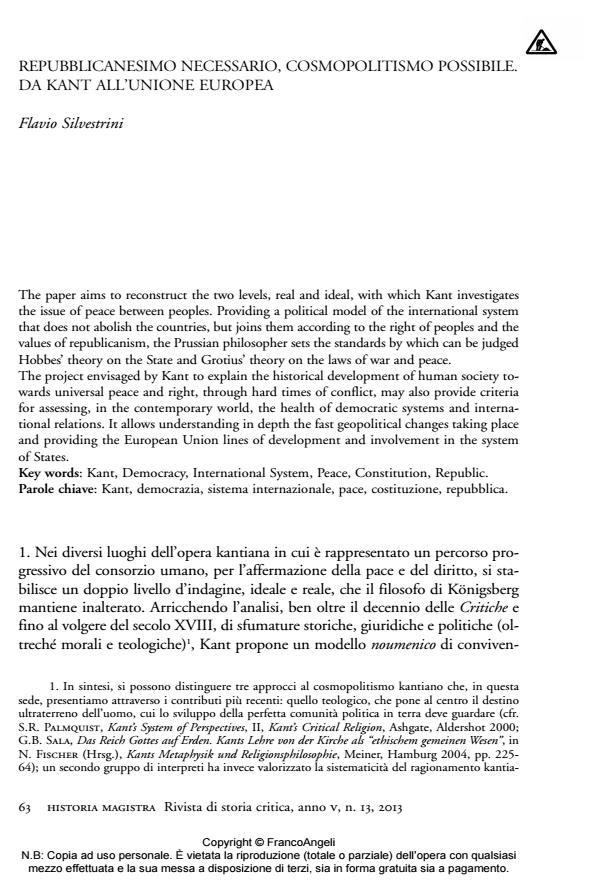Repubblicanesimo necessario, cosmopolitismo possibile. Da Kant all’Unione Europea
Journal title HISTORIA MAGISTRA
Author/s Flavio Silvestrini
Publishing Year 2014 Issue 2013/13
Language Italian Pages 13 P. 63-75 File size 551 KB
DOI 10.3280/HM2013-013006
DOI is like a bar code for intellectual property: to have more infomation
click here
Below, you can see the article first page
If you want to buy this article in PDF format, you can do it, following the instructions to buy download credits

FrancoAngeli is member of Publishers International Linking Association, Inc (PILA), a not-for-profit association which run the CrossRef service enabling links to and from online scholarly content.
The paper aims to reconstruct the two levels, real and ideal, with which Kant investigates the issue of peace between peoples. Providing a political model of the international system that does not abolish the countries, but joins them according to the right of peoples and the values of republicanism, the Prussian philosopher sets the standards by which can be judged Hobbes’ theory on the State and Grotius’ theory on the laws of war and peace. The project envisaged by Kant to explain the historical development of human society towards universal peace and right, through hard times of conflict, may also provide criteria for assessing, in the contemporary world, the health of democratic systems and international relations. It allows understanding in depth the fast geopolitical changes taking place and providing the European Union lines of development and involvement in the system of States.
Keywords: Kant, democrazia, sistema internazionale, pace, costituzione, repubblica
Flavio Silvestrini, Repubblicanesimo necessario, cosmopolitismo possibile. Da Kant all’Unione Europea in "HISTORIA MAGISTRA" 13/2013, pp 63-75, DOI: 10.3280/HM2013-013006